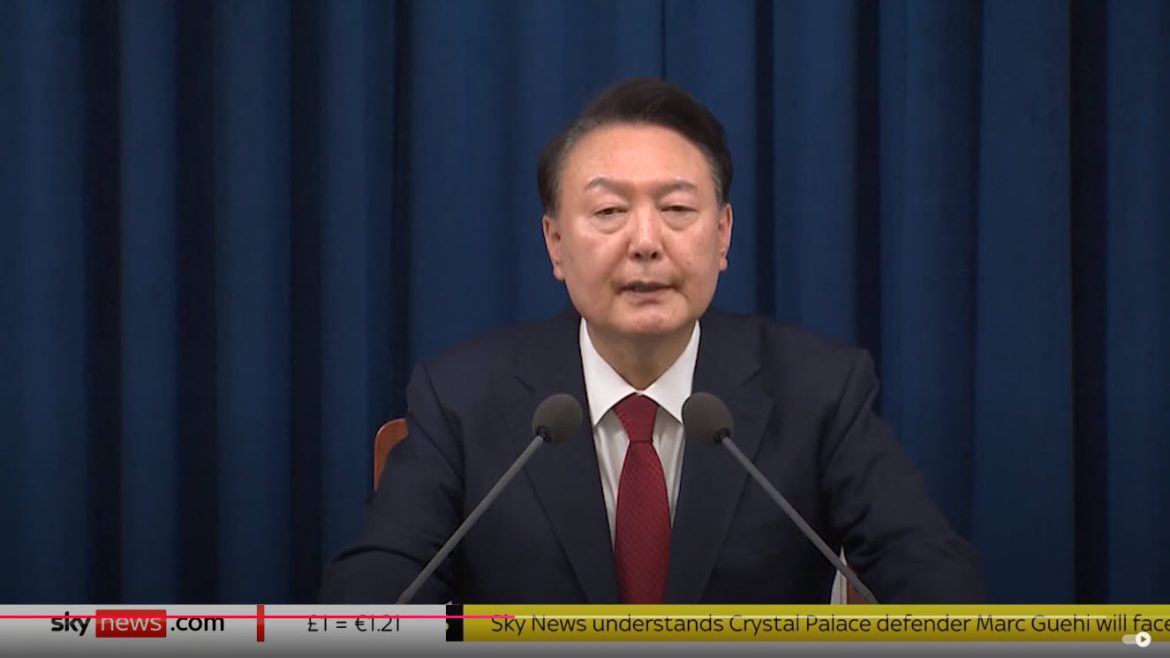South Korean President Yoon Suk Yeol is facing impeachment proceedings following his controversial declaration of martial law, a move that has sparked widespread unrest and a political standoff. On December 3, 2024, Yoon announced martial law, citing the need to counter “North Korea’s communist forces” and to “eliminate anti-state elements.” The move resulted in troops surrounding the National Assembly, triggering immediate protests across the nation.
President Yoon later justified his decision, claiming that opposition parties were sympathizing with North Korea and exerting undue influence over parliament. However, the National Assembly swiftly voted to block the martial law declaration, forcing Yoon to reverse his decision just hours later. Following the vote, troops began withdrawing from Seoul, signaling an attempt to restore normalcy.
The political turmoil has prompted the Democratic Party and other opposition groups to file an impeachment motion against the president, accusing him of unconstitutional actions. The motion, now under parliamentary review, requires a two-thirds majority vote and subsequent approval by the Constitutional Court. If passed, Prime Minister Han Duck-soo would temporarily assume presidential duties.
The situation in South Korea appears to be stabilizing, with troops pulling back and protests subsiding. However, questions remain about the motivations behind Yoon’s declaration and the implications for South Korea’s democracy. Political analysts warn that the incident could further polarize the country and erode public trust in its institutions.
The White House is closely monitoring developments, expressing concern about the potential impact on regional stability. In Beijing, NBC correspondent Janis Mackey Frayer reports that while tensions have eased, the situation remains delicate, with lingering uncertainties about South Korea’s political future.
International observers have also raised concerns about the broader implications of Yoon’s actions, warning that his justification for martial law risks setting a dangerous precedent. Domestically, the incident has galvanized opposition parties and activists, with the Korean Confederation of Trade Unions threatening nationwide strikes if Yoon does not resign.
The financial impact of the crisis is also being felt, as South Korea’s KOSPI index saw a 1.4% drop and the won hit a 25-month low. The Bank of Korea has responded with emergency measures to stabilize markets, including increased liquidity and relaxed collateral requirements.
While the immediate threat of martial law has dissipated, the fallout continues to shape the nation’s political and economic landscape. The impeachment proceedings against President Yoon are now a focal point, with the outcome set to have lasting implications for South Korea’s democratic governance and constitutional framework.



